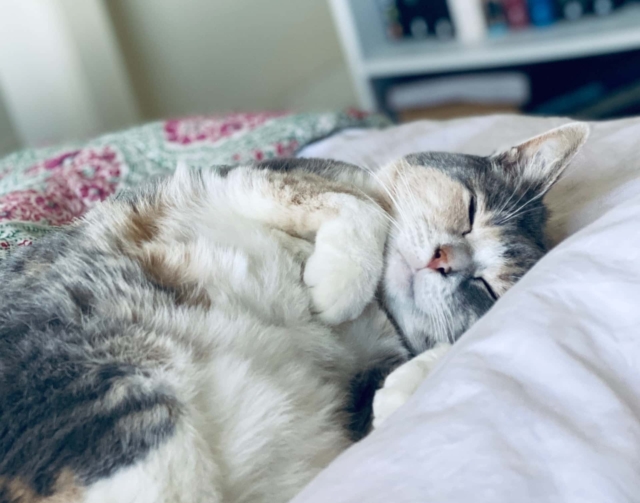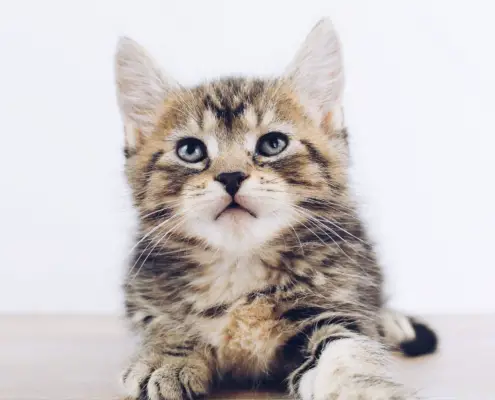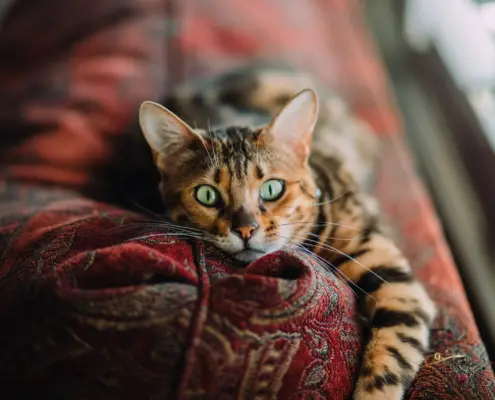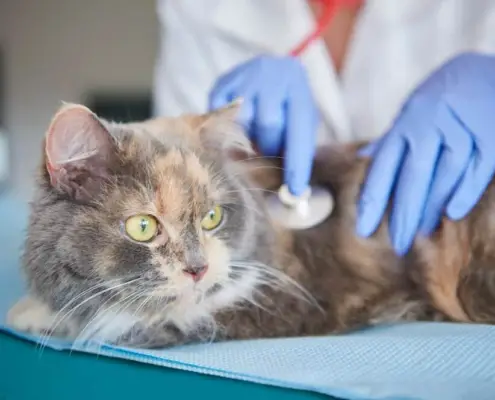
Pets have long been recognized for their ability to enhance our lives and improve our overall well-being. Among these furry companions, cats have a special place. They not only provide comfort and companionship but also offer a range of surprising health benefits. Whether you are dealing with stress, anxiety, or other mental health issues, cats can be an incredible source of support and solace. In this article, we will explore the various ways cats can boost your well-being and transform your life.
How cats can reduce stress and anxiety
Stress and anxiety have become common challenges in our fast-paced modern world. Fortunately, cats have a remarkable ability to help in managing these issues. Spending time with a cat has been shown to decrease stress levels and promote relaxation. The simple act of stroking a cat’s fur can release endorphins, which are natural mood enhancers. Additionally, the rhythmic sound of a cat’s purring has a soothing effect on the nervous system, helping to reduce stress and anxiety.
The calming effect of cat purring
One of the most fascinating aspects of cats is their ability to produce a purring sound. This gentle and rhythmic vibration has a profound impact on our well-being. Research has shown that the frequency of a cat’s purring falls within the range of frequencies that can promote healing and reduce pain. The vibrations produced by a cat’s purring have been linked to lower blood pressure, decreased heart rate, and improved breathing. This calming effect can greatly benefit individuals struggling with stress, anxiety, or even physical ailments.
Cats as companions for individuals with mental health issues
For individuals dealing with mental health issues such as depression or loneliness, cats can be a source of immense comfort and companionship. Cats are known for their independent nature, but they also form deep bonds with their owners. The presence of a cat can provide a sense of purpose, reduce feelings of isolation, and offer emotional support. The act of caring for a cat can instill a sense of responsibility and routine, which can be particularly beneficial for those struggling with mental health challenges.
Cats and their ability to lower blood pressure
High blood pressure is a common health concern that can lead to serious complications. Luckily, owning a cat can have a positive impact on this condition. Studies have shown that interactions with cats can result in lower blood pressure levels. The soothing effect of a cat’s presence and purring can help reduce stress, a major contributor to high blood pressure. Additionally, the calming nature of caring for a cat can encourage a more relaxed and peaceful lifestyle, further supporting a healthy blood pressure.
The role of cats in promoting better sleep
Getting adequate sleep is crucial for our overall well-being. Cats can play a significant role in promoting better sleep quality. The presence of a cat in the bedroom has been found to have a calming effect, leading to a more relaxed state conducive to sleep. The rhythmic sound of a cat’s purring can act as a natural sleep aid, lulling us into a peaceful slumber. Furthermore, the companionship and comfort provided by a cat can help alleviate anxiety and promote a sense of security, allowing for a more restful night’s sleep.
Cats and their impact on children’s well-being
Cats are not only beneficial for adults but can also have a positive impact on children’s well-being. Growing up with a cat can teach children important life skills such as empathy, responsibility, and compassion. Interacting with a cat can provide a sense of companionship and unconditional love, boosting a child’s self-esteem and emotional well-being. Furthermore, studies have shown that children who have pets, including cats, are less likely to develop allergies and asthma later in life, as exposure to pets early on strengthens the immune system.
The therapeutic benefits of interacting with cats
The therapeutic benefits of interacting with cats extend beyond the emotional realm. Cats can be incredibly therapeutic for individuals with physical disabilities or chronic illnesses. The act of petting a cat can provide tactile stimulation, relieve pain, and improve motor skills. Cats are also known to have a keen sense of intuition, often offering comfort and support during difficult times. Therapy cats have become increasingly popular in healthcare settings, providing companionship and emotional support to patients, particularly those undergoing treatment for cancer or other challenging conditions.
Are there any risks or drawbacks to owning a cat?
While the benefits of owning a cat are numerous, it is important to consider potential risks or drawbacks. Allergies to cat dander are relatively common and can cause respiratory symptoms in sensitive individuals. Additionally, cats may carry certain parasites, such as fleas or ticks, which can pose health risks. It is essential to take proper precautions, such as regular veterinary care and hygiene practices, to minimize these risks. Some individuals may also find the responsibility of caring for a cat to be overwhelming, so it is important to evaluate one’s lifestyle and readiness before bringing a cat into the home.
The transformative power of cats on overall well-being
In conclusion, cats have a remarkable ability to positively impact our well-being. From reducing stress and anxiety to promoting better sleep and lower blood pressure, their presence offers a multitude of benefits. Cats provide companionship, emotional support, and a sense of purpose, making them valuable allies in our journey towards improved well-being. Whether you are dealing with mental health issues, physical ailments, or simply seeking a source of comfort, cats can be the key to unlocking a state of serenity. So, if you have ever wondered, “Are cats good for my health?” the answer is a resounding yes! Consider opening your heart and home to a feline friend and experience the transformative power of their unconditional love and companionship.
If you enjoyed my article, I would appreciate you sharing it with your network.

Sima Ndlebe
Sima writes for CatBuzz. He is interested in Cats, Health and Fitness, and Entrepreneurship.
Published: 20 December 2023
Related Articles
Disclaimer
The content found on CatBuzz.org is presented on an "as is" basis and is intended for general consumer information and education purposes only. Any utilization of this information is voluntary and solely at the user's own risk.
None of the articles or content should be regarded as, or used in place of, veterinary medical advice, diagnosis, or treatment. The information provided on the website is purely for educational and informational intentions and should not be considered a substitute for professional guidance from a veterinarian or other qualified expert. The articles are designed to inform consumers about veterinary healthcare and medical matters that may impact their cat's daily life. It should be noted that this website and its services do not constitute the practice of any form of veterinary medical advice, diagnosis, or treatment. CatBuzz.org explicitly disclaims any liability for any direct or indirect damages or losses that may arise from the use of or reliance on the information contained within the content.
Consumers must consult a veterinarian, veterinary specialist, or another qualified veterinary healthcare provider when seeking advice regarding their cat's health or medical conditions. It is important not to ignore, avoid, or postpone seeking medical advice from a veterinarian or other qualified veterinary healthcare provider solely based on information obtained from this website. If you believe that your cat may be experiencing a medical issue or condition, it is imperative to promptly contact a qualified veterinary healthcare professional.




